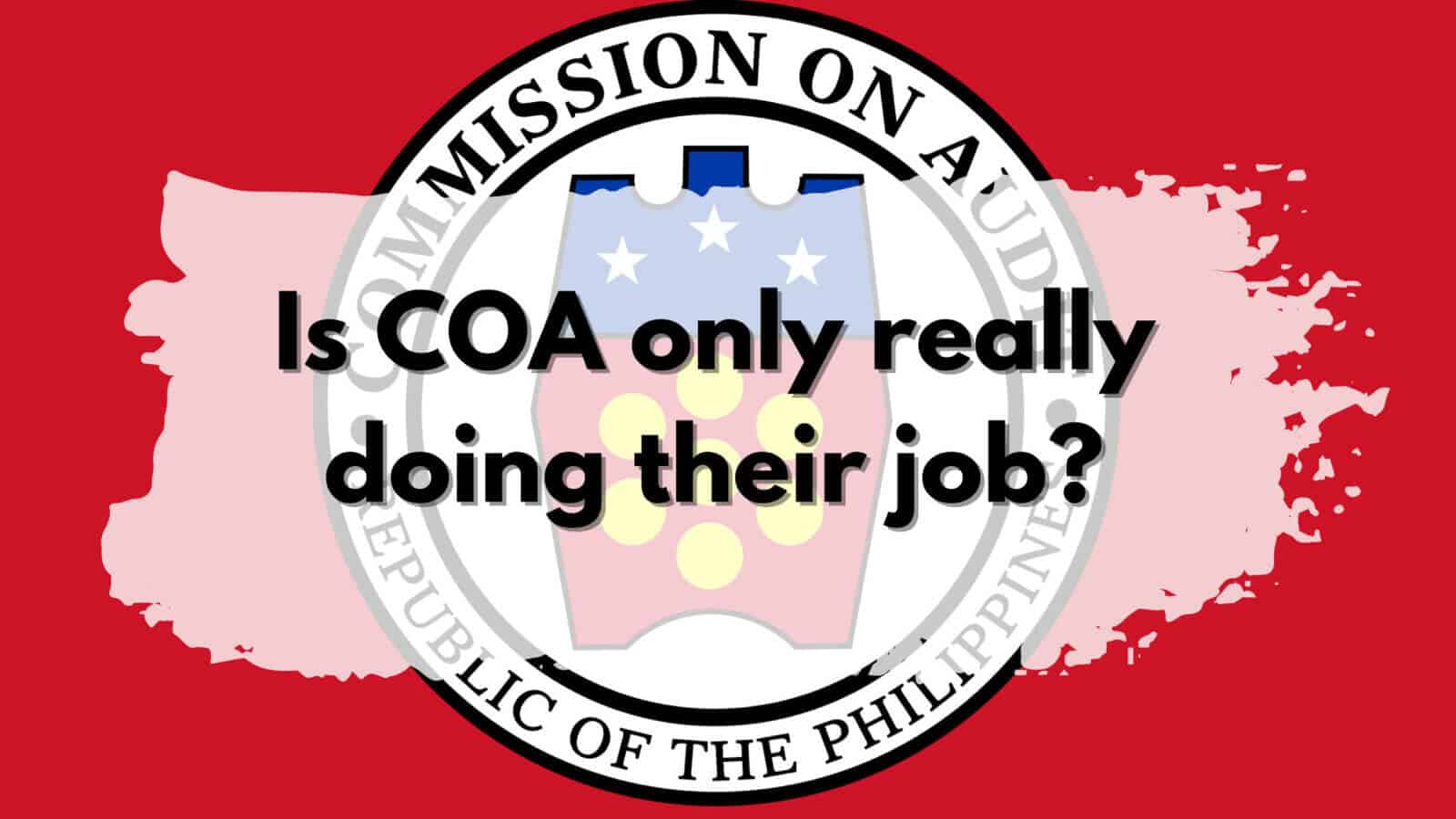HISTORY OF COA
The Commision on Audit (COA) has been a long-standing institution in the Philippines. Its roots date back to the Spanish Era of the Philippines where the books of accounts of our country are being audited by representatives of the Spanish crown. During the American colonial period, a similar function was done by the Office of the Auditor of the Philippine Islands, as established by then President William Mckinley. Later on, the 1936 Constitution of the Philippines established the General Auditing Office or GAO to perform the audit function of the Government. During 1972, GAO, under Martial Law, was renamed to become the Commission on Audit (COA). The biggest change in the audit function of the government was the change from a single Auditor General, to a three-man collegial Commission on Audit. Years later, the EDSA Revolution ensued. This signaled the move of our country from a dictatorship to the establishment of a democratic country. This also signaled the move of the Commission on Audit to a new government.
COMPOSITION
Under the 1987 Constitution of the Philippines, Section 1 (1), Article IX-D provides that the Commision on Audit should be composed of:
- a Chairman and
- Two Commissioners, who:
- shall be natural-born citizens of the Philippines and,
- at the time of their appointment:
- at least thirty-five years of age;
- certified public accountants with not less than ten years of auditing experience, or members of the Philippine Bar who have been engaged in the practice of law for at least ten years, and;
- must not have been candidates for any elective position in the elections immediately preceding their appointment.
At no time shall all Members of the Commission belong to the same profession.
TERM
Under the 1987 Constitution of the Philippines, Section 1 (2), Article IX-D provides the following in relation to the term of the officers of COA:
“The Chairman and the Commissioners shall be appointed by the President with the consent of the Commission on Appointments for a term of seven years without reappointment.
Of those first appointed, the Chairman shall hold office for seven years, one Commissioner for five years, and the other Commissioner for three years, without reappointment. Appointment to any vacancy shall be only for the unexpired portion of the term of the predecessor.
In no case shall any Member be appointed or designated in a temporary or acting capacity.”
POWERS of COA
Under the 1987 Constitution of the Philippines, Section 2 (1) and (2), Article IX-D provides the following in relation to the powers of COA:
The Commission on Audit shall have the power, authority, and duty to examine, audit, and settle all accounts pertaining to the revenue and receipts of, and expenditures or uses of funds and property, owned or held in trust by, or pertaining to, the Government, or any of its subdivisions, agencies, or instrumentalities, including government-owned or controlled corporations with original charters, and on a post-audit basis:
- constitutional bodies, commissions and offices that have been granted fiscal autonomy under this Constitution;
- autonomous state colleges and universities;
- other government-owned or controlled corporations and their subsidiaries; and
- such non-governmental entities receiving subsidy or equity, directly or indirectly, from or through the Government, which are required by law or the granting institution to submit to such audit as a condition of subsidy or equity.
However, where the internal control system of the audited agencies is inadequate, the Commission may adopt such measures, including temporary or special pre-audit, as are necessary and appropriate to correct the deficiencies. It shall keep the general accounts of the Government and, for such period as may be provided by law, preserve the vouchers and other supporting papers pertaining thereto.
The Commission shall have exclusive authority, subject to the limitations in this Article, to:
- define the scope of its audit and examination;
- establish the techniques and methods required therefor; and
- promulgate accounting and auditing rules and regulations, including those for the prevention and disallowance of irregular, unnecessary, excessive, extravagant, or unconscionable expenditures, or uses of government funds and properties.
Can a law prevent COA from doing the tasks enumerated above?
The answer is no. Under the 1987 Constitution, Section 3, Article IX:
“No law shall be passed exempting any entity of the Government or its subsidiary in any guise whatever, or any investment of public funds, from the jurisdiction of the Commission on Audit.”
It is clear that no law can actually be enacted to prevent COA from auditing any branch of the Government. Thus, no government agency is exempted from COA’s jurisdiction.
To whom does the COA report?
The distinctive feature of the 1987 Constitution of the Philippines is the creation of Constitutional Commissions. There are three Constitutional Commissions that were established under it, namely:
These commissions are mandated, under the 1987 Philippine Constitution, to be independent. This means that it shall not be under the direction and supervision of any branch of the Government, whether it be the Executive Department (President, Vice-president, and Cabinet members), the Legislative Department (Congress), and the Judiciary (Supreme Court).
How should the COA act on its own then? What should be its output?
Under Section 4, Article IX of the 1987 Constitution:
- “The Commission shall submit to the President and the Congress, within the time fixed by law, an annual report covering the financial condition and operation of the Government, its subdivisions, agencies, and instrumentalities, including government-owned or controlled corporations, and non-governmental entities subject to its audit, and;
- Recommend measures necessary to improve their effectiveness and efficiency.
- It shall submit such other reports as may be required by law.”
The Commission on Audit has recently published its report to the public about the misappropriation of funds of the different branches of the Government. However, we should keep in mind that the Commission on Audit is merely doing its job, as mandated by our Constitution. As we are directly impacted by the misappropriation of Government funds, we must join hands with COA to really bring into light scrupulous activities happening around us, especially those involving our Government. Hopefully, in the future, the COA would not be able to release findings of misappropriation, but rather, findings of improved internal controls and facilities to guard the public’s pocket.






































